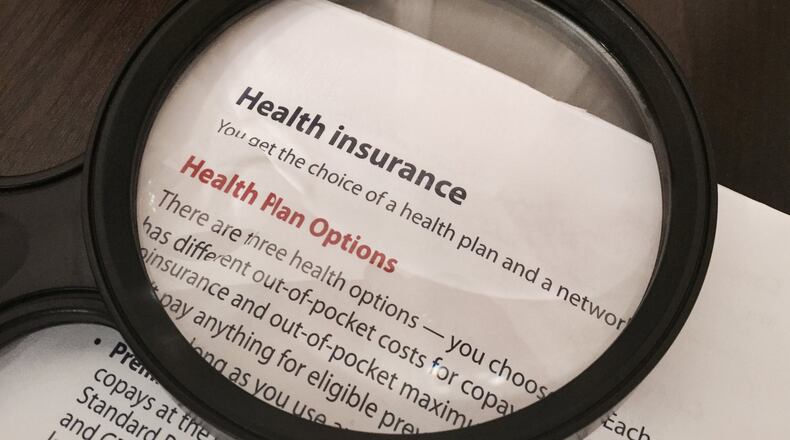Georgia's Senate Health and Human Services Committee on Tuesday passed a bill to give the governor power to shape two programs that could improve access to government-funded health care for more Georgians.
The measure, Senate Bill 106, passed the committee on a 9-4 vote, with mostly Republicans voting against the Democratic minority. The Democrats objected to voting so quickly with little debate on such an important bill.
SB 106, proposed by Gov. Brian Kemp, has the potential to make sweeping changes in Georgia health care — or just small ones.
It would authorize the governor to seek two “waivers” from the federal government that would allow the state to create government-funded health care initiatives here, but to reshape the rules for them in a way that Georgia officials believe would work better for this state. But the bill, 17 lines long, doesn’t get too specific about how ambitious the goals of those initiatives would be. It gives the governor the power to make those choices after the bill becomes law.
Then Georgia would apply for the waivers, and the federal government would decide whether to grant them.
One of the waivers would be for a new initiative under the Medicaid program, possibly to expand coverage to poor people who currently have no insurance.But Medicaid, the state and federal program that pays for health care for the poor and some disabled people, mostly does not cover low-income childless adults in Georgia.
The other waiver would be for a new initiative under the Affordable Care Act health insurance exchange aimed at helping to stabilize the private insurance market.
Witnesses across the political spectrum each testified they supported the idea of a waiver, but each offered his or her own hopes about what it would do.
Kemp hailed the committee passage in a statement, adding that he looked forward to working with the full Senate and House “to pass this measure and ultimately put Georgia patients first.”
Lt. Gov. Geoff Duncan, who oversees the Senate, joined in Kemp's statement, saying that he applauded the committee's chairman, state Sen. Ben Watson, R-Savannah, and the committee "for today's substantive deliberation and decisive action." Duncan has stood publicly with Kemp on the bill, but the House may offer a more difficult path.
Kemp intends to hire consultants to research what to do before he makes his choices. If those choices require money, the General Assembly would still have the power to fund them or not.
Opponents said there should be more debate over SB 106 and that the bill should provide for more legislative input on the waivers.
Within the space of about an hour, 14 witnesses testified before the Senate committee, each for three minutes or less. The committee then discussed what it heard and voted.
One of the issues Democrats wanted to discuss was the cap within the bill on the poor population to be considered for the Medicaid waiver. The bill caps the population who could benefit at those who make up to 100 percent of the federal poverty level, or about $12,000 a year for a single individual. Federal law gives states the option to consider more people for Medicaid, up to 138 percent of the federal poverty level, or about $16,000 a year for an individual.
As Watson called for a vote, Senate Minority Leader Steve Henson, D-Stone Mountain, tried in vain to offer an amendment to the bill that would allow the governor to investigate options for people who make up to 138 percent of the poverty level. Watson held the vote, and it passed with no amendments.
Watson acknowledged that the bill “in my opinion is one of the most important bills we do this session or maybe over the next four years.” But after the meeting he said the time for a vote had come because the subject of health care has long been discussed in the Legislature.
Stay on top of what’s happening in Georgia government and politics at ajc.com/news/georgia-government/.
About the Author
Keep Reading
The Latest
Featured




